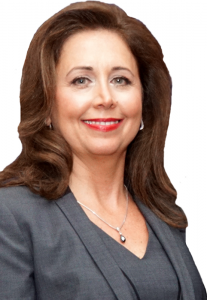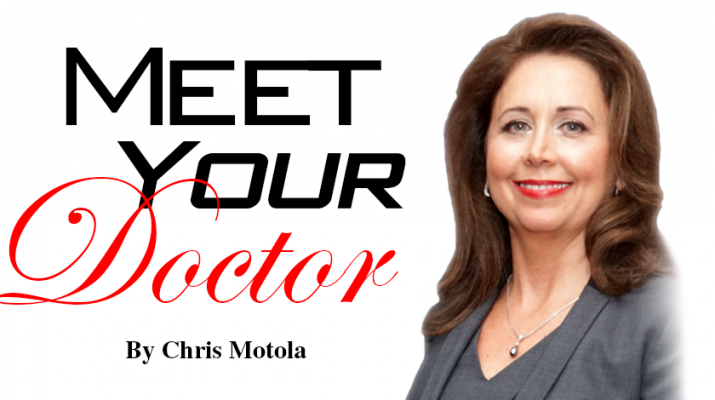President of Onondaga County Medical Society talks about the creation of a program to help avoid physician’s burnout, drug abuse in Syracuse and why we need more primary care physicians
By Chris Motola
 Q: How does the Onondaga Medical Society advocate for doctors?
Q: How does the Onondaga Medical Society advocate for doctors?
A: We work together with legislation experts and meet with politicians local, state and federal government and discuss issues throughout the year.
Q: How did you become interested in heading the group?
A: My kids are in college, so I have more free time now. I thought it would be a good time to give back to the community. One of my friends introduced me to the group and then I worked my way up to being the president.
Q: What kind of impact would you like to have?
A: Well, it’s only one year, so it’s too short, but I have some ideas. We started putting together a program to help with physician burnout. It’s becoming a problem lately among physicians. We’re also trying to put together a program on the prevention of chronic diseases. If we have time, I’d like to put together a nucleus for a drug treatment program that the president who takes over next year can build upon.
Q: How big a problem has serious drug abuse become in the county?
A: Oh yeah, this is a big problem, especially in the Syracuse area. We’re working with the public health commissioner on that and we’re hoping we can do something about it next year. We’re trying to do both physician and public education for now. We’ve been promoting a survey the public health commissioner put together for physicians to get some ideas about how we can approach this. We’re still working on that.
Q: How does your organization respond to all of the uncertainty caused by rapidly changing health care laws?
A: We are trying to get physicians voices to the politicians. We’re hoping that the result of “repeal and replace” will help both patients and physicians, but hopefully we’ll see the final results soon so we know what we’re dealing with.
Q: Given the number of foreign-born physicians in Onondaga County and Central New York, does the Onondaga County Medical Society have a stance on political issues like travel bans?
A: When we met with officials at the legislative breakfast in February, we were against the initial travel ban because it affected a number of physicians and residents in the Syracuse area, but the revised travel ban isn’t going to affect people working in the United States.
Q: Do you think Onondaga County is ready to deal with the challenges related to its aging population at this point?
A: It’s a problem, really. We need more primary care doctors. That’s a problem all over the United States, not just our county, but we need a lot more. So, we’re advocating for that. We need more slots created for residency programs in primary care. The problem isn’t just baby boomers, but regulations and physicians choosing to join hospitals, which cuts down on available outpatient care.
Q: How do you attract physicians to the area? What is the appeal for someone coming from a bigger city, another state or from another country?
A: It’s a little tough because usually people who come to Syracuse or stay here have some family connection to here. Not that many choose to relocate here from out of state, and that’s our problem here. We might be able to offer better contracts and get some of their medical school loans paid if they work in underserved areas. It would also help if we could recruit more local students; they’re the ones most likely to stay in Syracuse. Our school accepts a lot of out-of-state students whereas some states take mainly local students. We’re very competitive here. But local applicants would probably stay.
Q: What would a program to get local students into medical school look like?
A: It’s the school’s decision, of course, but they could choose who they take. Locally, as an organization, our members have provided funding through the Upstate Alumni Foundation for scholarships to help cover some costs for two local Onondaga County high school students to attend the Upstate University Medical School. Also, the medical society’s Alliance organization provides modest scholarships for several Onondaga County high school graduates to pursue medical careers. I would encourage other community health organizations and institutions to make even more opportunities available. This would benefit all of us who live here.
Q: What are the biggest concerns physicians in the area have?
A: The major thing within the last few years, after the introduction of the electronic health record, is physician burnout. The rates of suicide and depression among physicians has been climbing up. That’s why we concentrated on it this year. We’re conducting two-hour sessions every month on how to deal with workload and overcome these problems.
Lifelines
Name: Mary Abdulky, M.D.
Position: Rheumatologist with Arthritis Health Associates in Syracuse and president of Onondaga County Medical Society
Hometown: Damascus, Syria
Education: University of Damascus; New York Medical College
Affiliations: St. Joseph’s Health; Crouse Hospital
Organizations: Onondaga Medical Society, American College of Rheumatology
Family: Married, one son, one daughter
Hobbies: Oil painting, ballroom dancing

